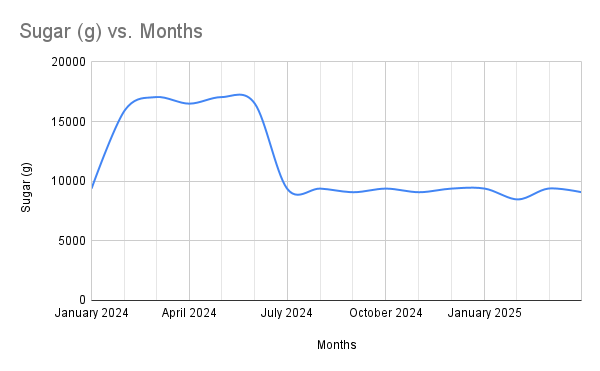
A 13-year-old boy has drunk around 8,470 bottles of peach tea in a little over a year since seventh grade. Masaaki Kobayashi, an eighth-grade student attending St. Mary’s International School in Tokyo, is infamous throughout the school community for drinking copious amounts of peach tea. He had been consuming half a kilogram of sugar every day. “I’m worried about his state of health, but he’s very committed to Cezar’s Kitchen”, Kiharu Hoshino commented. This excessive peach tea drinking has raised concerns among the community regarding his health.
It was a hot and humid day, with the blue sky filled by the sun shining down onto the students, excited to go out and play. With the whistle being blown, and kids running for the stairs, many were hurrying to eat lunch. For Masaaki, he would walk towards the cafeteria with a sense of boredom after passing some hours sitting in classrooms and worn out from the midday break, and to add on with an aching thirst within his body calling for refreshment.
The stairwell would be crowded, the atmosphere filled with the stench of sweat and the need for food, illuminated by the sunlight and the LED lights looming alongside the smell of food. The crowd was halted by the teacher, and once let through, the crowd overflowed the room, where the freezer and the peach tea lay. Before anyone else, he was the first to take it and to return to a seat. “One time, I heard him announce that he would chug down as many bottles as he could. He chugged down three full bottles of peach tea. After that, I felt pretty sick. I was traumatized, and it wasn’t funny,” stated Louis Hindle, another eighth-grade student. After several rounds of chugging in fifteen minutes, his body could no longer endure it.
Consuming almost half a kilogram of sugar is not healthy. A single peach tea bottle contains 27.5 grams of sugar, meaning Masaaki had once drunk 137.5 grams of sugar in one sitting. To put it into perspective, health experts have recommended that more than 36 grams of sugar per day is not recommended; typically, most of the sugar consumed originates from soft drinks.
Max Lai, a fellow eighth-grade student, states the general perspective against peach tea. “I think it’s unhealthy because there are five or six cubes of sugar in one bottle of peach tea, and he drinks eight bottles per day. I don’t think it’s good for him from a health perspective”. Sora Miyazawa, another peach tea enthusiast, in the same grade as Masaaki, has argued, “I love the taste, but also the feeling of that cold sweet drink right after recess.” Both Masaaki and Sora have pointed out peach tea and its positives, emphasizing the taste, refreshment, and sweetness which are all combined into one bottle.
Sugar is widespread in foods and drinks, such as peach tea, to flavor and extend their shelf life. When sugar is consumed in large amounts, especially from artificially added sugars, it can cause several health issues, which are becoming more widespread. To start, sugar can increase the risk of heart disease, increase blood pressure, increase fat, cause diabetes, and many other issues. The claim by Sora that peach tea feels hydrating is not necessarily true. During metabolization, sugar uses up water, meaning sugary drinks are an inefficient source of proper hydration. Additionally, drinking excessive amounts of fluid, such as drinking more than 4 liters every day, can cause damage to health, depending on the individual. This is known as overhydration or water intoxication, and it has been known to cause death in some cases, due to the imbalance in electrolytes such as sodium, and lastly, tooth decay. Most soft drinks are acidic, meaning the potential to harm the teeth. These health risks often affect uninformed consumers like Masaaki, who find themselves particularly susceptible.
The 8,470 bottles reveal an endangerment to health, an important issue for the school community to solve. The solutions can be simple, reading up on the data is important, and allowing people to be aware of the true contents of the seemingly innocent bottle. Caesar’s Kitchen and the vending machines on the school campus can limit the sale of sugary soft drinks by removing them as options. Workers as well as friends have to stop being idle and stop and point out when friends are doing something bad. To make a realized impact, the community has to begin by working to eliminate the underlying reasons students do this, such as low energy and stress. Although soft drinks could be seen as evil and dangerous, only long-term extreme drinking of soft drinks usually has short-term or long-term effects, and the community can work together to solve these issues through sharing valuable information and sharing their voice to push for needed changes.